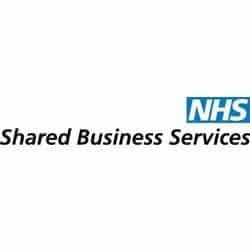NHS Shared Business Services has launched a new clinical information systems framework worth up to £1.25 billion, with 26 different suppliers offering solutions.
NHS SBS issued a tender for the framework last August, splitting it into six lots.
Lot one, with an estimated value of £10 million to £800 million, covers core healthcare clinical information systems, with 15 suppliers having been awarded places.
The other lots are for integrated emergency care clinical systems; theatre clinical systems; child health systems; maternity systems; and specialist electronic prescribing systems.
The framework, which will operate for four years with a potential two-year extension, is intended to help NHS trusts save money and time by avoiding the full OJEU procurement process.
Instead, trusts will be able to hold “mini-competitions” among suppliers listed on the framework that can be completed in a shorter timeframe and at less cost.
The framework may prove helpful for trusts in the North, Midlands and East of England moving off their local service provider contracts before they expire in July 2016.
Mary Barber, the CSC LSP programme director at the HSCIC, has previously expressed concerns about the lack of progress made by some trusts, warning that the end of the contracts will unleash huge a demand for systems that suppliers might struggle to meet.
NHS SBS set up a major framework contract to cover digital imaging systems and related technology as the National PACS Programme drew to a close, but nothing similar had been created for trusts looking at the end of the electronic patient record elements of the programme.
Tom Slater, NHS SBS’s provider procurement manager, told EHI News the launch of the framework is a “really gratifying” moment for the organisation.
“It was a significant challenge, but we got it delivered on time and on target, and it does represent a really positive, open piece of work and progress.”
Slater said the diverse range of suppliers on the framework will ensure that there is an “extremely thorough cross-section of different abilities” for trusts to choose from.
He acknowledged criticism from some areas about a lack of flexibility in procurement frameworks, and said the SBS had tried to balance the need for agility with rigorous testing for suppliers.
“I think we’ve addressed those concerns across the whole drafting of the agreement: it is structured in a way that the NHS will be able to refine their requirements at a local level, but it’s also specific enough to ensure that they will only test with suppliers who can meet their requirements.”
To ensure the framework remains agile, the appointed suppliers will be able to bring forward new releases throughout the life of the agreement.
Peter Akid, NHS SBS’s director of procurement, said the framework “is about achieving a far more efficient and strategic way of procuring complex clinical systems that reduces the procurement timescales and save tens of thousands of pounds in the process”.
Slater said NHS SBS is planning to attend a number of events in the coming months to promote the framework, and has already received expressions of interest from a number of trusts.
He said the framework is “absolutely unrestricted” and free for trusts to use.
The framework also includes a new entrant in maternity systems, American company Maternity Neighbourhood, which offers a maternity-specific electronic health record.
Maria Booker, the company’s UK general manager, said its place on the framework “shows we are a credible alternative to established players in the industry”.
“As a midwife-founded company, offering a record that women, as well as midwives can access electronically, we want to partner with trusts [that] are serious about offering patient-centred maternity services and want a patient-centred, maternity-specific clinical record to match.”
A full list of suppliers on the framework can be viewed here.

